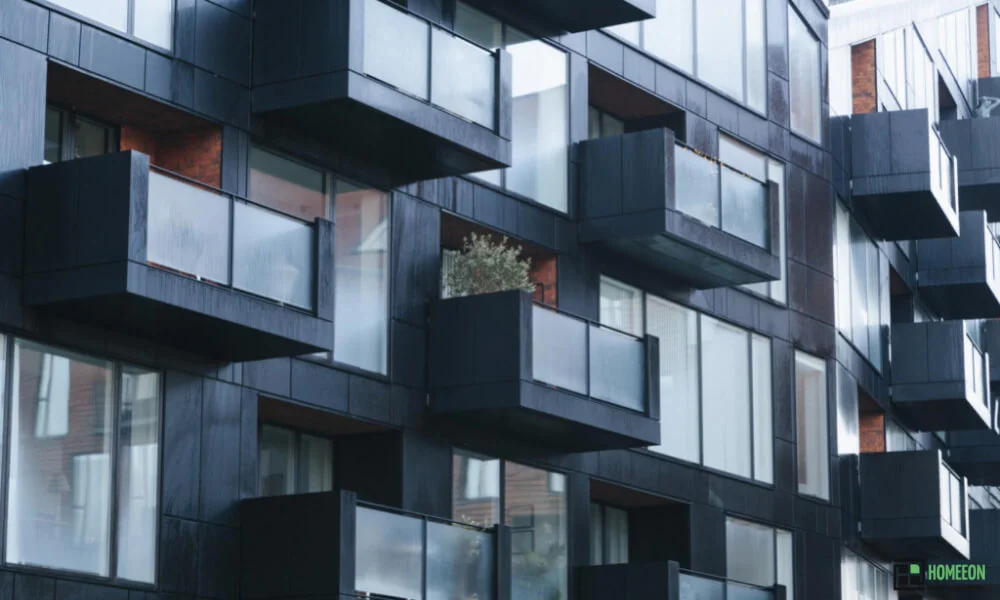Last Updated on July 18, 2023 By Emma W. Thomas
In most cases, living in an apartment with someone, not on the lease is not allowed without the landlord’s consent. Leases typically specify who can reside in the unit, and adding unauthorized occupants may breach the lease agreement. If the landlord agrees, the additional person might need to go through a background check and sign a lease addendum. However, having someone unapproved on the lease can lead to legal consequences and eviction.
Can You Live In An Apartment With Someone Not On The Lease
Living in an apartment with someone who is not listed on the lease can be a complicated situation. While there may be instances where it is feasible and allowed, it is important to consider several key factors before making such a decision. Let’s explore whether you can live in an apartment with someone, not on the lease.
- Check your lease agreement: Start by carefully reading your lease agreement. Most leases have specific clauses that outline who can live in the apartment and for how long. Violating these terms could lead to lease termination or other legal consequences.
- Speak with your landlord or property management: If you are considering having someone live with you who is not on the lease, it is essential to have an open conversation with your landlord or property management. They should be the first point of contact for discussing any potential changes or additions to the lease agreement.
- Understand the legal implications: Depending on the jurisdiction and the terms of your lease, living with someone, not on the lease could have legal implications. It may result in violating occupancy limits set by local regulations, breach of contract, or potential eviction. Make sure to research and understand your local laws and the consequences before proceeding.
- Consider the implications on your rental history: Having someone not on the lease can impact your rental history. If the person causes damage or fails to pay rent, you may be held responsible. This could make it challenging to rent future apartments or obtain references from your current property management.
- Assess the financial implications: Another crucial aspect is the financial impact. If your roommate is not on the lease, they may not be legally obligated to contribute to rent or utilities. Make sure you have a clear understanding of cost-sharing and financial responsibilities to avoid any potential conflicts.
- Evaluate the roommate’s credibility: It’s important to assess the credibility of the person you are considering living with. Ensure they can be trusted to follow the rules, pay their share, and respect the property. A roommate not mentioned on the lease may not have undergone the necessary background checks, which could pose potential risks.
- Explore alternative options: If having someone not on the lease is not a viable option, consider exploring alternative living arrangements such as subletting or finding a new roommate who can be added to the lease. These options can help maintain transparency and avoid potential legal or financial complications.
In summary, living with someone, not on the lease can be a risky proposition. It’s crucial to check your lease agreement, consult your landlord, understand the legal implications, assess the financial impact, and evaluate the credibility of the person. By considering these factors, you can make a more informed decision about whether it’s feasible to live with someone, not on the lease.
Why all residents should be on the lease
When it comes to renting a property, it’s essential for all individuals residing at the premises to be included on the lease agreement. This not only protects both the renters and the landlord but also ensures a smoother tenancy period for everyone involved. In this listicle, we present five crucial reasons why all residents should be on the lease.
- Legal Protection:
By including all residents on the lease, both tenants and landlords enjoy legal protection. When everyone signs the agreement, they are bound by its terms and conditions, which sets forth each party’s rights and responsibilities. In case of any disputes or breaches, having all residents on the lease provides a clear framework for resolving issues and seeking remedies. - Shared Financial Responsibilities:
Including all residents on the lease ensures that everyone shares the financial burden equally. This arrangement is fair and prevents any one individual from shouldering the entire financial responsibility of the tenancy. It also ensures that rent payments, utilities, and other costs are distributed evenly among the residents, reducing the risk of conflicts arising due to financial discrepancies. - Liability and Damages:
When only certain individuals are on the lease, there can be complications when it comes to liability and damages. By including everyone in the lease agreement, it becomes easier to determine responsibility for damages caused to the property. Additionally, if one resident causes damage or violates the terms of the lease, it prevents the other residents from being held accountable for their actions. - Safety and Security:
Everyone’s safety and security is paramount. Including all residents on the lease, it enables the landlord to conduct proper background checks and screenings for all occupants. This ensures that all individuals living on the premises have been vetted, providing peace of mind for the landlord and fellow residents. Moreover, it assists in maintaining a healthy and responsible living environment for everyone involved. - Access to Property Amenities:
When all residents are on the lease, they are entitled to enjoy the various amenities offered by the property. This includes access to parking spaces, recreational areas, communal facilities, and any other benefits outlined in the lease agreement. By being included in the lease, all residents can confidently enjoy and utilize the amenities without facing any issues or restrictions.
What Are The Consequences Of Not Being On The Lease?

A person staying in an apartment without being on the lease for more than two weeks risks legal action if anything happens in residence. As a tenant, you can also get evicted for violating the lease by allowing someone to move in with you.
If you intend to host a family member, friend, or partner in your apartment for more than 14 days, it is necessary to inform the landlord to put them in the lease. Doing this helps protect you from any unforeseen problems that may arise in the future.
Who Are Unauthorized Occupants?
As a landlord, you need to know how to handle different people on your premises and distinguish them. Any person who is not recognized in the lease is termed as an unauthorized occupant, and they include;
- A tenant’s partner or significant others
- A roommate or someone subletting the premises
- An extended family member or friend
It is easy to spot someone who is not authorized to live in your apartment by checking their schedule. Other tenants or neighbors may also report an occupant who is disruptive.
What Should A Landlord Do Before Evicting A Tenant Who Hosts An Unauthorized Person?
While eviction may be a remedy for dealing with a tenant who breaches the lease agreement, it is necessary to think about it before taking this step. Here are some things to consider;
Look At Their Record.
Before evicting your tenant, it is essential to look at their record. Consider if they pay their rent on time if they have had issues with other tenants, and whether they cooperate with you on important issues. If you have not had problems with your tenant, you could decide to amend the lease instead of the eviction process.
Condition Of The Property
Whether the tenant and their new occupants are taking care of the property or not could also help the landlord to make an informed decision. If there have been more repair and maintenance requests from when your tenant brought in a new tenant, it could be a red flag. But, if the property is still in good condition, then there may be no need for eviction.
Eviction Cost
The process of eviction may be costly than you anticipate. You must consider if you have enough funds to cater for this move. You will also have to hire the services of an attorney since it is a legal process. Evicting a tenant may take more time than you anticipate, and it is good to consider all this before you can finally decide.
Whether There Are Complaints From Neighbours

You can also check with the community or neighbors if there are any issues with your tenant and their guests. If the presence of an unauthorized occupant causes damages to communal property, then evicting the tenant could be a viable option.
How Fast You Will Get Another Tenant
Before evicting a tenant, it is essential to consider how long it will take for the premises to get another resident. It would also help to think about the marketing costs and any losses you may incur when the apartment remains vacant. After weighing the options, you can allow the tenant to stay until their lease expires.
Proof Of Illegal Occupancy
Proving that the unauthorized person is living on your premises and has no other residence could be challenging. You will need to have enough evidence before you can evict your tenant on allegations of hosting an illegal occupant. You may be required to consult your attorney to know if you have a case against your tenant.
How Can You Prevent Unauthorized Tenants From Your Apartment?
Dealing with illegal tenants could be tricky. It is easier to prevent such persons from living in your apartment. The following are some ways to avoid them;
You Can Put It In The Lease
When signing a lease agreement, the tenant must know what constitutes a guest and an occupant. You need to specify the number of days beyond which a guest becomes an occupant. Let your tenants know that they need to notify you in writing when they intend to bring in a new person to the apartment.
Be Around Your Premises Frequently.
When you frequently visit your premises, tenants may not have the courage to stay with people, not in the lease. It may deter them from inviting such guests or occupants since they know that you will discover their secrets. You can also have people on-site to keep a watchful eye on you. Property managers can also be helpful when it comes to checking on your tenant’s activities.
Avoid Long-Term Leases
When your tenants are on long-term leases, there are high chances of changing their circumstances. One is likely to get new partners, pets, or even children, which calls for unauthorized occupants. A short-term lease may help prevent your tenants from bringing in people, not on their leases.
What Do You Need To Know About A Lease?
A well-drafted lease helps to protect both the landlord and the tenant from legal headaches and troubles. It also helps to save on time spent trying to check what is right or wrong. Below are some tips that help in creating a better document;
Personalizing The Lease
Customizing a lease instead of using a premade document helps prevent issues that may arise in the future. But, it is necessary to personalize it depending on the federal or local laws and your specific rental requirements and terms. You will need to understand what your state laws say about the security deposit, disclosures, and tenancy terms. You can enlighten yourself about the rules by visiting your local government’s website. Read about the residential landlord and tenant ordinance to help you tailor the lease.
Specify All Terms Clearly
Make sure that all the rental terms are specified in the lease. Be sure to include;
- Rental period whether monthly, half-yearly, or yearly
- The start and end date
- Maximum number of occupants
- Names of all residents
- Name, contact, and signature of the cosigner
- Rent amount, due date, late payment fee, and penalties
- Security deposit amount and any additional fees
- Whether pets are allowed on the premises, what size, and number
- Utilities included in the rent and which are to be paid for by the tenant, and requirements for setting up utilities (for example, electricity or gas companies)
- Repair and maintenance protocol
Include Important Clauses
It is necessary to add all the necessary clauses as these will help to mitigate legal issues. The table below highlights some provisions that are crucial in your lease.
Clause | What it states |
Severability | Even if any portion of the lease is invalid, it won’t affect other parts. It remains valid |
Jointly and severally liable | All those who sign the lease are responsible for rent payment and upholding the lease. |
Lessee to maintain | A tenant should maintain the premises in good condition, including fixtures, appliances, carbon monoxide/smoke detectors. A tenant is responsible for repairing damages that happen during their tenure. |
Access to premises | A landlord can access their property during reasonable hours and with proper notice. |
Subletting rules | A tenant should consult with the landlord before subletting their space. |
Disturbance | A tenant should avoid any activities that disturb the peace of other tenants. For example, you can regulate the hours for playing loud music. |
Attorney’s fees | If a lawsuit arises, the court awards you legal fees if you are the prevailing party. |
Rent liability | A tenant should pay rent on time throughout the tenancy period. |
Updating The Rental Lease Regularly.
A landlord must keep updating the lease terms any time a new tenant comes in. The areas to update include; names, lease dates, amounts, cosigner’s information, and any legal fees. You will also need to update the rules and requirements your tenants should uphold. For example, you can include the regulations on keeping pets on the premises.
Wrapping Up
You can live with a tenant who is not in the lease in your apartment, but it is necessary to know the consequences. Be sure to read and understand the lease to know what you require. You may live with some guests for a maximum of 14 days within six months if you do not want them added to the lease.
References:
https://getjerry.com/renters-insurance/can-someone-live-with-you-without-being-on-the-lease
https://renterlifestyle.com/can-someone-live-with-you-without-being-on-the-lease/
Emma is a graduate of Domestic Science or Family and Consumer Sciences (Home Economics) from the University of Wisconsin. She has 7 years of experience Working with the strategic section of BestBuy and now writing full-time for Homeeon.
From Managing the Home, Interiors, Cleaning, and Exteriors to Gardening and everything about Making A Home Liveable – is her passion and this Homeeon is the result of this.
Emma loves decorating her home with the best stuff found online. She cares about quality over anything and writes reviews about them here in Homeeon. Get in touch with her over Pinterest.
Keep reading her blogs.

